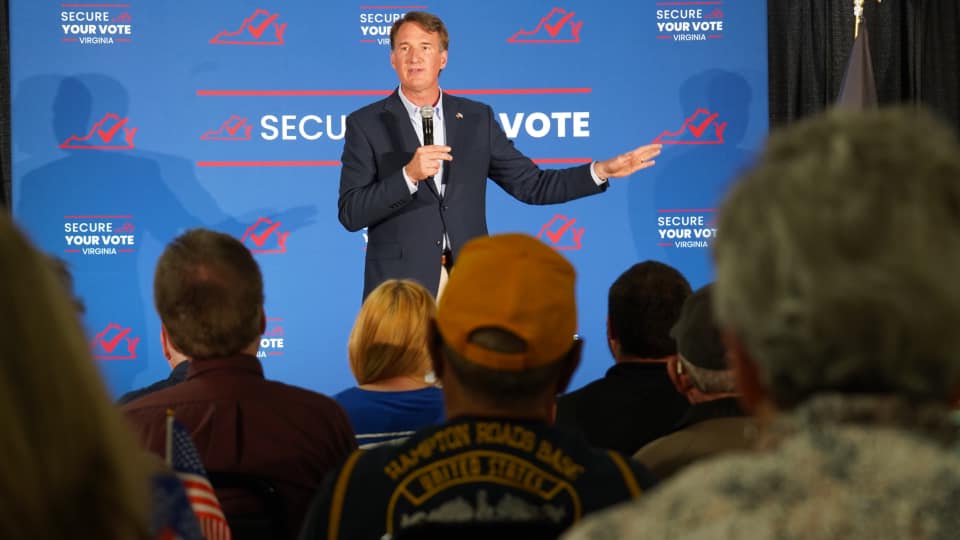FOR IMMEDIATE RELEASE: April 10, 2024
Arlington, VA – Virginia governor Glenn Youngkin has vetoed Senate Bill 428, legislation which would have expanded the use of Ranked-Choice Voting in state elections.
Ranked-Choice Voting, also known as ‘Instant-Runoff Voting’ and ‘Preferential Voting,’ is a scheme that has made voting more confusing and difficult, reduced transparency, and put confidence and certainty at risk when implemented in public elections, with horror stories in Alaska, California, Colorado, Maine, New York, Utah, Virginia and elsewhere.
As designed, Ranked-Choice Voting manufactures a majority winner, in part, by routinely ‘exhausting’—or throwing out—thousands of ballots so candidates need only win a majority of the remaining votes, not a majority of all votes cast.
Virginia already has some of the most lenient election laws in the country after being systematically dismantled by Democrats during the previous administration. In fact, an astonishing 70 anti-Election Integrity bills were enacted from 2020-2021.
Last month, ETI issued a letter to Gov. Youngkin urging his veto of a slate of bills passed by the Democrat-controlled legislature.
National Chairman of the Election Transparency Initiative and former Virginia Attorney General Ken Cuccinelli issued the following statement:
“We are grateful to Governor Youngkin for protecting the ideal of one person, one vote counted fairly, equally, and honestly. This is the foundational tenet of free and fair elections Americans expect and deserve. But Left-wing, anti-Election Integrity megadonors are financing a nationwide campaign to promote the disastrous Ranked-Choice Voting scheme intended to dramatically push our politics to the Left, to elevate Left-leaning politicians, and to weaken political parties to their benefit.
“Ranked-Choice Voting has proven unworkable in public elections. We applaud Governor Youngkin for protecting the right to vote in the Commonwealth and to continue rejecting attacks on elections voters of all types can trust.”
Ranked-Choice Voting requires a voter to rank each candidate on the basis of ‘least bad’ by assigning a numerical designation to the candidate the voter favors most to the candidate the voter favors least. If no candidate receives more than 50 percent of first-choice votes in the first round of voting, the last-place finisher is eliminated, and each ballot cast for that candidate is reallocated to the voter’s second-choice candidate. This process continues until one candidate receives a majority of votes.
What happens when a voter does not rank every candidate, and his choices are eliminated? The ballot is deemed ‘exhausted’ and is thrown out. This is part of how Ranked-Choice Voting manufactures a majority winner.
Provided here is a comprehensive list of RCV horror stories.
Visit StopRCV.com to learn more, or view our fact sheet.
The Election Transparency Initiative, a partnership between the American Principles Project (APP) and Susan B. Anthony (SBA) Pro-Life America, was organized to combat federal H.R. 1 and H.R. 4 legislation and advocate for state-based election reforms that voters can trust.
###

